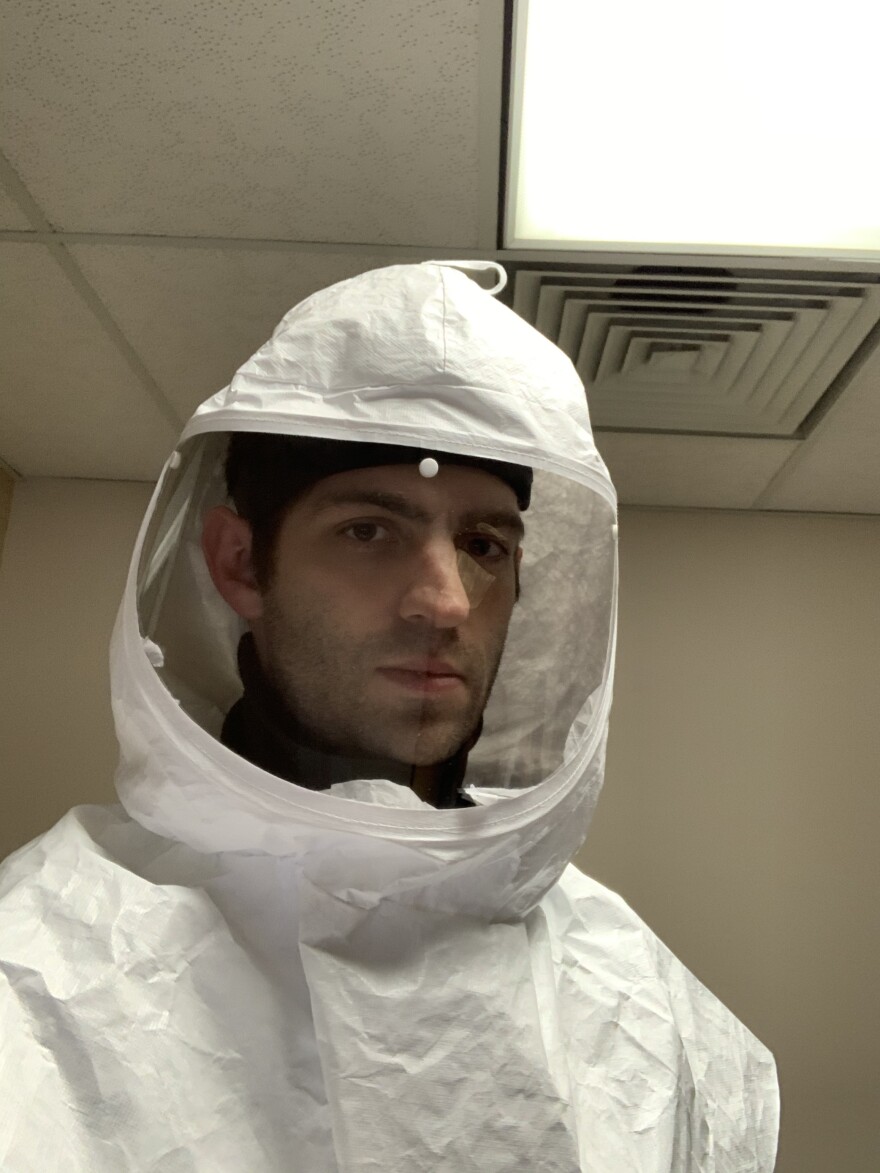Dr. Nick Mark usually takes 10 or 15 seconds to breathe, relax and focus before starting a delicate procedure like inserting a breathing tube into a patient.
But, on a recent day, the tactic backfired. Mark was about to perform a procedure on a patient with COVID-19, a situation that puts him at risk of catching the coronavirus if his protective gear were to fail.
"The thought just hit me, like, 'I could get this,'" Mark said. "'This is a high-risk procedure. I could die. My kids could grow up not knowing who I am.'"
Mark is a pulmonary critical care doctor who splits his time between a few Seattle hospitals. He's been treating some of the sickest COVID-19 patients in intensive care units, or ICUs. Part of his job is connecting patients to ventilators after the virus has ravaged their lungs.
He's among the Seattle-area health care workers who have been fighting the epidemic for weeks in the country's first epicenter of the outbreak, and likely will continue battling it for months ahead.
"Sometimes when you slow down, the reality of the situation hits you that this is the biggest public health crisis of our time," Mark said. "This is the worst pandemic in a century."
Mark spoke with KNKX Public Radio about how COVID-19 differs from other conditions he's treated, and how the outbreak has altered his work and spilled into his everyday life.
You can listen to that interview above.
Mark, as a doctor with some of the earliest experiences treating critically ill coronavirus patients, created a one-page sheet of facts and tips that was distributed in hospitals around the United States.
An updated version of the #ICUOnePager (v2.7) on critical care of patients with #COVID19 is now available, incorporating newer published data, and more info about ventilator weaning. #covid4MDs #FOAMcc download the .PDF or .PPT with hyperlinks ➡️https://t.co/y1s2DVdeSb pic.twitter.com/grKPAtN3Qx
— Nick Mark MD (@nickmmark) March 27, 2020
Since then, he's had COVID-19 patients die without family in the room, due to strict limits on hospital visitors. He's had colleagues fall ill. Like other health care workers, he's developed elaborate rituals designed to keep him from getting sick or bringing the virus home.
Weeks into the outbreak, he and other Washington health care workers are at an uncertain point.
Signs are emerging that the state may avoid some of the most dire predictions of overwhelmed hospitals and ventilator shortages.
Yet it remains unclear when the outbreak will peak, and how intense the peak will be.
"I don't know what things are going to be like in a week or two," Mark said. "They may be much worse than they are now.
"I've never been scarder to be an ICU doctor. But I've also never been prouder."







